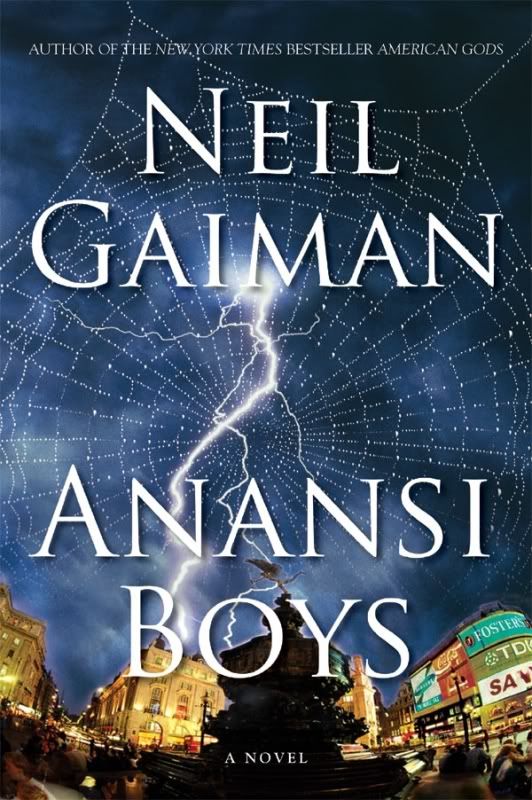
Anansi Boys
Neil Gaiman’s Anansi Boys begins with the story of Fat Charlie Nancy and how embarrassed he is by his father, who he finds out is dead. He then learns that his father was the god Anansi and that he has a brother that he never knew about named Spider. An old family friend tells him how to contact his brother – oddly enough, whispering his desire to see him to a spider – and one drunken evening, he follows those directions.
Of course, when his brother finds him, everything gets turned upside down. Spider moves into Fat Charlie’s flat, goes to Fat Charlie’s job, and sleeps with Fat Charlie’s girlfriend. Poor Fat Charlie eventually becomes homeless, jobless, and alone due to his reckless brother’s actions. In an effort to make Spider leave, Fat Charlie gets mixed up in powers that he does not understand and he’s forced to try and navigate both the impossible realities of the gods and the complicated reality of mortals in order to save himself and his brother.
While I do enjoy Neil Gaiman’s writing immensely, I can’t say that this book was one of my favourites. It was an interesting and complex storyline and I enjoyed following all the links to all the different characters, but because the book bounces between Florida, England, the Caribbean, and the gods’ dimension so often, I found it difficult to put this story into context. If the story had been about a physical journey or quest, I would be fine with this setting change. However, the journey was really almost entirely internalized. The people he needed to talk to just happened to be in different places rather than seeming to be placed in different locations deliberately.
My biggest problem probably was the strong loyalty of Fat Charlie to England. Yes, he lived there for many years and changed his accent and all that, but what mattered in the story were his roots to Florida and the superstitious, Deep South culture that he had grown up in. If he had spent more time in that environment and less time trying to fly back to England all the time, I would probably have enjoyed this book more. I think his personal journey would have resonated stronger with me if he had to fully re-immerse himself back into that Floridian culture rather than taking those breaks to return to what he currently considered normal.
Either way, Neil Gaiman is always worth a look through. I would definitely recommend this to people who like what I call ‘god stories’1 and people who enjoy that brand of realistic fantasy. Of course, I would definitely recommend this to already established Gaiman fans. Despite my problems with it, I do think this novel is worth picking up and having a look through.
1 God stories are what I call stories about ancient gods in a modern context.






No comments:
Post a Comment